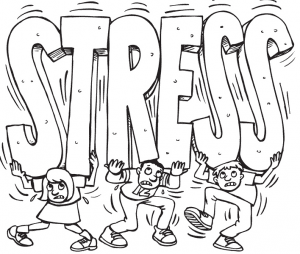 Thank you for coming along for the ride as I discussed the impact stress has on situational awareness and decision making. This series reads like the chronicles of a virtual chamber of horrors.
Thank you for coming along for the ride as I discussed the impact stress has on situational awareness and decision making. This series reads like the chronicles of a virtual chamber of horrors.
First responders, emergency responders or people working in dangerous, highly stressful situations, focus a lot of attention on tactical training and skill development. Far less time (if any) is spent understanding the physical, chemical and psychological impacts of stress on job performance, decision making and situational awareness. If I had the ability to influence national training curriculum’s, I would make these topics mandatory for all people involved in high stress environments. This article contains the highlights from the series.
Each article is hyperlinked in case you missed it or want to review it.
Part 1: Your the physical, chemical and emotional impact
Your body’s reaction to stress is a game changer when it comes to how you think and, to some respects, how you behave. The consequences of the fight or flight reaction to stress can have consequence on situational awareness.
There are three types of stress that can impact you physically, chemically and emotionally: Acute stress, episodic acute stress, and chronic stress.
Part 3: Some stress is good stress
Eustress compels your performance and helps you be your best. Stress driven by desire is healthy stress. Stress driven by fear is unhealthy stress.
Stress causes your senses to go on high alert in the presence of perceived danger. This can be both good and bad.
Under stress your brain may prevent you from seeing things that happen around you. This can impact your situational awareness because you may not be able to see the things that can harm you.
Under stress your brain may prevent you from hearing things that are happening around you. This can impact your situational awareness.
Stress impacts your ability to process information. The higher the stress, the more difficult it can be to capture and process and understand information.
Stress can cause two types of time distortion. The first gives the appearance that time is slowing down or speeding up. The second is losing track of the passage of time because attention is focused on other things. Both can impact situational awareness.
Summary
At the risk of sounding redundant I cannot stress enough the catastrophic importance of understanding stress on job performance and job safety.
If there is anything I can do to help improve your safety or the safety of your team, please contact me.
_____________________________________________________

If you are interested in taking your understanding of situational awareness and high-risk decision making to a higher level, check out the Situational Awareness Matters Online Academy.
CLICK HERE for details, enrollment options and pricing.
__________________________________
Share your comments on this article in the “Leave a Reply” box below. If you want to send me incident pictures, videos or have an idea you’d like me to research and write about, contact me. I really enjoy getting feedback and supportive messages from fellow first responders. It gives me the energy to work harder for you.
Thanks,

Email: Support@RichGasaway.com
Phone: 612-548-4424
SAMatters Online Academy
Facebook Fan Page: www.facebook.com/SAMatters
Twitter: @SAMatters
LinkedIn: Rich Gasaway
Instagram: sa_matters
YouTube: SAMattersTV
iTunes: SAMatters Radio
iHeart Radio: SAMatters Radio

The stress on emergency workers is not recognized and dealt with properly in big industrial company’s e.g.. the mining sector. HSEC see this as a unnecessary safety measure. that later leads to PDSD, depression ,other disorders, and unhealthy family relationships, witch just keep on snowballing until the FF or team member starts showing it in his ability to preform at work or on a emergency seen when he is most needed, a debriefing and on-going evaluation should be conducted at least once a month by a professional Psychologist or psychiatrist dealing with PDSD and related mental disorders, or should be available to make use of this professional dealing with related cases. It is an absolutely necessity that is mostly always overlooked in the HSEC departments. especially in South Africa.
Hein,
Thank you for sharing your experience in South Africa and how stress impacts responders there. I appreciate your participation.
Rich